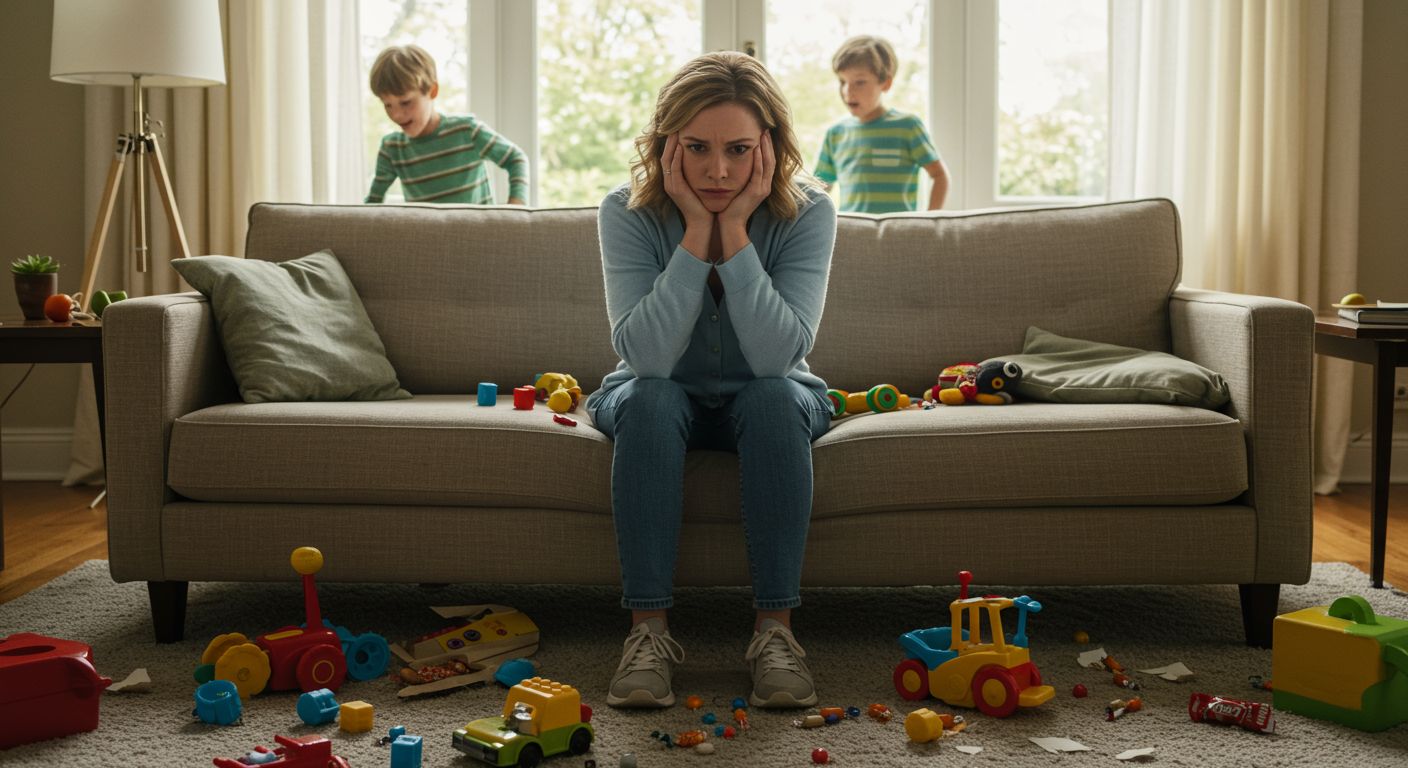The Myth of “The Mess Can Wait” and Its Impact on Mental Health

The common advice for new mothers to “ignore the household mess” and focus entirely on their baby is often framed as a way to reduce stress during an overwhelming time. The idea is to help mothers prioritize bonding with their newborn without worrying about housework. This advice seems liberating at first, allowing mothers to let go of perfectionism and avoid feeling guilty about not maintaining a spotless home. However, this approach can have unintended consequences. While it might provide short-term relief by removing the pressure to keep up with chores, it often leads to increased stress in the long run. As the household mess accumulates, many mothers experience a growing sense of overwhelm. The disarray in their living space becomes a source of anxiety, especially when combined with the physical exhaustion and emotional demands of caring for a newborn.
Research underscores the connection between a cluttered home and mental health challenges. A study from UCLA found that women who perceived their homes as cluttered had elevated cortisol levels, indicating higher stress. This is particularly concerning for new mothers, as they are already at heightened risk of postpartum depression (PPD) and anxiety. In fact, a study by the Royal College of Psychiatrists revealed that 10-15% of new mothers experience PPD, and environmental stressors, such as a disordered home, can worsen these symptoms.
When a living space feels out of control, it can intensify feelings of inadequacy and emotional burden, making it harder for new mothers to focus on their own well-being and their baby. The mess becomes a constant, visible reminder of everything they aren’t managing, feeding a cycle of stress and anxiety. In contrast, maintaining a basic level of order at home can provide a sense of control and structure, helping to reduce feelings of overwhelm. A tidy environment doesn’t mean striving for perfection but recognising that an organised space can promote mental clarity and peace. Ignoring the mess entirely might seem like a quick fix, but it can actually undermine the goal of creating a peaceful, nurturing atmosphere for both mother and child.
Ultimately, the advice to “let the mess wait” overlooks how external environments affect internal mental states. Rather than ignoring the chaos, new mothers would benefit more from seeking support—whether from partners, family, or hired help—to manage household tasks. This allows them to focus on their baby while maintaining an environment that supports their mental health and well-being.
The Link Between a Tidy Home and a Tidy Mind
There is substantial evidence that a clean, organized home contributes to better mental clarity and reduced anxiety. Numerous studies have shown that our physical environment plays a critical role in shaping emotional and psychological well-being. One prominent study from UCLA revealed that individuals, especially women, who described their homes as cluttered had higher levels of cortisol, a hormone linked to stress. Clutter serves as a constant reminder of unfinished tasks, increasing stress and mental exhaustion. For new mothers, already navigating postpartum recovery and caring for a newborn, this additional stress can intensify feelings of overwhelm and anxiety.
Similarly, a UK study from the University of Southampton found a direct link between clutter in the home and higher levels of stress. Participants living in disorganized environments reported increased anxiety, underscoring the psychological benefits of maintaining a tidy space. When clutter is managed, it reduces visual chaos, allowing individuals to feel more in control and calm in their surroundings.
Beyond stress reduction, a tidy environment also supports mental clarity and focus. A study published in the journal Personality and Social Psychology Bulletin found that people working in a tidy space were better able to concentrate and make decisions compared to those in cluttered environments. This enhanced cognitive function is particularly beneficial for new mothers managing the demands of both home and childcare, as it helps them feel more organized and less overwhelmed by daily tasks. Moreover, the UK’s National Health Service (NHS) emphasizes the importance of an orderly, calm space to promote emotional well-being, particularly during periods of high stress like the postpartum phase. By reducing visual clutter and maintaining a sense of order, new mothers can experience lower levels of anxiety and improved emotional regulation, helping them navigate the challenges of early motherhood.
Maintaining a tidy home fosters a sense of control and calm, which is essential for emotional stability. For new mothers, this can significantly reduce the mental load, allowing them to focus on bonding with their baby without being distracted by the disarray around them. A peaceful, organized environment not only supports their own well-being but also promotes a more nurturing atmosphere for the child. Studies show that when mothers experience less stress, they are more emotionally available to their babies, fostering a secure bond that supports the child’s development.
In summary, a tidy home offers mental clarity, reduces stress, and provides emotional stability, which is particularly crucial for new mothers. By maintaining order in their surroundings, they can better manage the pressures of motherhood, positively impacting both their own mental health and their child’s well-being.


